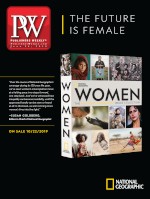More than 200 people from 40 countries attended the International Publishers Association’s Africa Rising summit on June 13 and 14 in Nairobi. The event featured panel discussions and presentations on the challenges of professional publishing, both trade and educational, in Africa.
Among the topics addressed were opportunities for innovation in print and digital publishing; the need for more investment, public and private; and the need to establish piracy and copyright protections. Cultural projects discussed included prioritizing publishing in indigenous languages in order to increase literacy, promoting free speech, and decolonizing existing institutions, such as textbook publishers and libraries—all of which are in various states of development by local African publishers and institutions, now with the additional support of the IPA.
“African publishing is the new frontier,” said Kenyan novelist Ngugi wa Thiong’o in the opening keynote speech of the conference, in which he touched on the various ways colonialism was an impediment to the professionalization of an indigenous African publishing ecosystem. In the past, “English was the language of glory, while African languages were the languages of gory,” he said, encouraging publishers to publish books in indigenous languages and addressing the misperception that there is no existing market for them. “If Iceland, with 300,000 people, can sustain literary culture, why not Africa, where there are 40 million speakers of Yoruba, or 60 million Hausa, and 100 million speaking Swahili?”
Overall, the African publishing industry, which serves a population of 1.2 billion people, generates approximately $1 billion in revenue, according to estimates by the Nigerian Publishers Association—despite more literacy rates below 50% in large swaths of the continent, as per the UNESCO Institute of Statistics. The continent also exports $173 million in print books, according to the UN Comtrade database. The Nigerian Publishers Association pegs sales growth at 5% per year across the continent.
The largest constituencies at the conference came from Kenya, Nigeria, and South Africa, the traditional English-language strongholds, but there was also significant representation from Francophone Africa, including Algeria, Cameroon, and Mali.
“Africa is one of the most widely misunderstood regions in the world,” said Bodour Al Qasimi, v-p of the IPA and CEO of the U.A.E.’s Kalimat Group, in an address to the conference. “It is also one of the most underrepresented regions in global literature and culture. We want to reverse these facts.”
Al Qasimi was influential in establishing the IPA’s recent focus on Africa, which began last year with a conference in Lagos, and she has brought in numerous Emirati sponsors for the events, such as the charity Dubai Cares, which committed $800,000 over four years to help develop African publishing.
IPA’s efforts are showing meaningful, if incremental, progress. Prior to this year’s conference, representatives from 40 different African publishers associations gathered to witness the signing of a memoranda of understanding between the IPA, the African Publishers Network, and the Association for the Development of Education in Africa to formalize the IPA’s commitment to the region.
In addition, the IPA, together with the Nigerian Publishers Association and the Kenya Publishers Association, released the Lagos Action Plan. Stemming from the 2018 gathering in Nigeria, the plan outlines five “transformation goals,” including fostering more collaborative partnerships, updating copyright protections for the digital age, and expanding diversity and inclusion in publishing. Two of the most tangible goals are establishing a database of African books and ISBNs and collecting sales data, a project led by Nielsen Book Research International. “The first step is convincing retailers in the big markets to report so we can create a basic bestseller list,” said Nielsen director Andre Breedt, who noted that Bookscan is already implemented in South Africa.
The majority of those in attendance were excited that the IPA had chosen to focus development efforts on the region. Aside from bringing attention and resources, the biggest contribution the IPA can make is to help instill in African publishers a sense of belonging to the international community.
“I always thought that publishing was something for foreigners,” said Thabiso Mahlape, publisher of South Africa’s BlackBird Books, a press established in 2015 to publish new black voices. “Our white counterparts don’t need the confidence to publish, but our young black people do.”



 Volume 266
Issue 25
06/24/2019
Volume 266
Issue 25
06/24/2019





